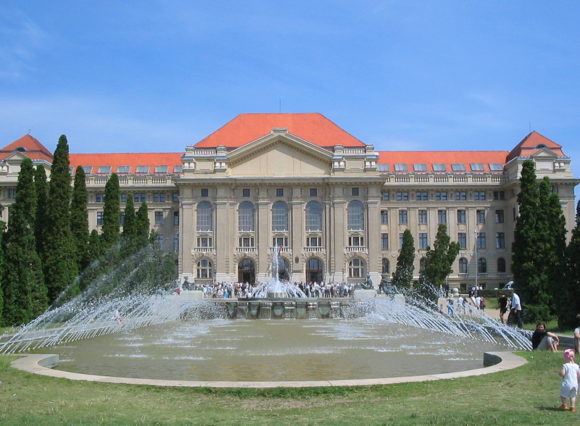The first space vehicle of the University of Debrecen has been completed, which is planned to travel into outer space at the beginning of next year. The unique instrument will measure the radiation reaching technical equipment in the cosmic environment. The innovation of UD SPACE’s Radiation Physics Research Group was presented at a workshop in Borsay Castle in Mád.
The device prepared by UD specialists is a 3×3 centimeter radiation dosimeter, which will be part of a picosatellite. The final tests of the so-called “CubeSat” will be carried out in November, after which the packaging of the device will begin. The instrument that measures cosmic radiation reaching electronic equipment is expected to be sent into space in the first half of 2023 by Space Exploration Technologies, i.e. the American space research company SpaceX, László Csernoch, scientific vice chancellor of the University of Debrecen, told hirek.unideb.hu.
At the meeting in Mád, UD SPACE’s working groups (Radiation Physics, Space Biology, Space Nutrition, Space Medicine and Diagnostics, Climate Change, Isotopes, and Their Applications Research Group) presented the latest results of their investigations carried out in the program.
In the two-year project of the Thematic Excellence Program of the National Research, Development and Innovation Office (NKFIH), UD SPACE researchers performed outstandingly effective work. Cooperation with market players has started. The professional results are also confirmed by the fact that in the UniSpace program established with the participation of 17 domestic universities, UD’s task is to train space professionals skilled in living natural sciences, including nutrition and health sciences, added the vice-rector.
László Csernoch emphasized: that the results of the research work carried out in the program can be directly used in the investigation of certain phenomena of earthly existence. For example, in the field of osteoporosis, arteriosclerosis, muscle weakness, or radiation.
In the program, we ask questions that relate directly to space travel, long-term stays, and astronauts. However, through the conclusions and observations, we get answers that also determine life on earth,
– explained the vice-chancellor.
László Csernoch emphasized: that 61 Q1 publications by researchers of the University of Debrecen were published in international scientific journals in the Topical Excellence Program. In order to continue the research, however, it is necessary to establish the National Space Research Laboratory, with the establishment of which domestic space research can help the international space programs even more concentratedly and efficiently.
hirek.unideb.hu










